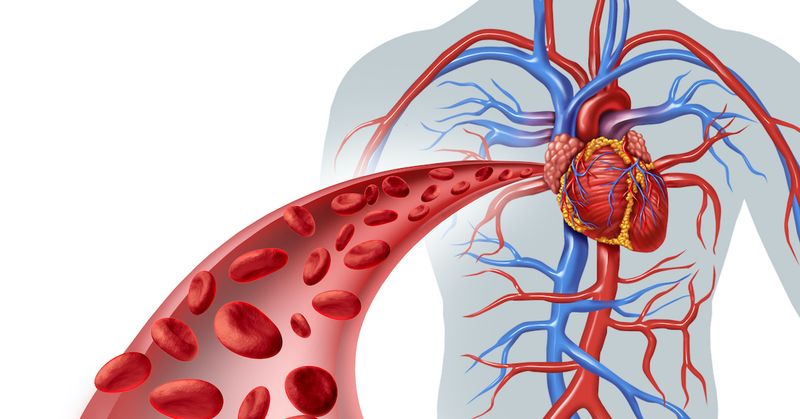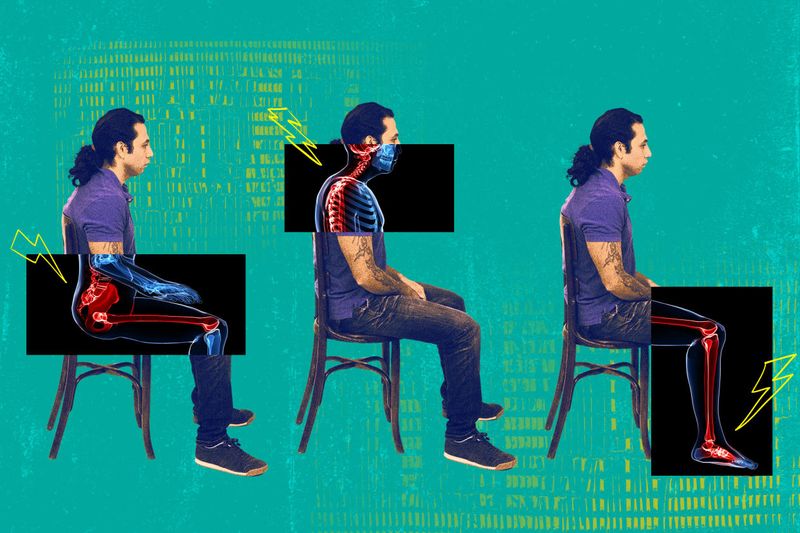In today’s modern world, many people find themselves glued to their chairs for extended periods, whether it’s at work, during commutes, or while relaxing at home. While regular exercise is often touted as a shield against heart disease, the truth is that prolonged sitting can undermine these efforts.
Sitting for long periods can take a toll on your cardiovascular health, leading to a range of issues that aren’t entirely mitigated by hitting the gym. Understanding the unique ways in which sitting impacts your heart is essential for making necessary lifestyle adjustments. Here are five surprising ways prolonged sitting can harm your heart health, even if you think you’re doing everything right by staying active.
1. Reduced Blood Flow

Sitting for long periods causes blood to pool in the legs, leading to reduced blood flow. This can increase the risk of blood clots forming, particularly in the lower extremities.
This pooling of blood can also lead to varicose veins and swelling. Over time, the reduced circulation can strain the heart, forcing it to work harder to pump blood throughout the body.
Even regular exercise may not completely counteract the negative effects of poor circulation caused by prolonged sitting. Finding ways to move regularly throughout the day is essential to maintain healthy blood flow.
2. Increased Blood Pressure

When you sit for long hours, it can lead to an increase in blood pressure. Being stationary restricts the arteries from expanding and contracting effectively, which can cause spikes in blood pressure.
This is especially concerning for those who already have hypertension. The constant elevated pressure can damage blood vessels and accelerate the buildup of plaque.
Taking breaks to stand or walk can help alleviate some of this pressure, promoting better cardiovascular health. Consistently high blood pressure is a serious condition that affects heart health adversely.
3. Altered Cholesterol Levels

Prolonged sitting can lead to imbalances in cholesterol levels, notably decreasing ‘good’ HDL cholesterol. This alteration affects the body’s ability to remove ‘bad’ LDL cholesterol, which can accumulate and form plaques.
These plaques narrow the arteries, increasing the risk of heart disease. The lack of physical movement contributes to these imbalances, disrupting normal metabolic processes.
Making conscious choices to reduce sitting time can positively impact cholesterol levels, aiding in heart health maintenance even with regular exercise.
4. Increased Heart Disease Risk

Sitting for extended periods has been directly linked to an increased risk of heart disease. The sedentary lifestyle contributes to various heart-related issues, even for those who exercise regularly.
The risk is compounded when sitting is coupled with poor dietary habits or a lack of movement throughout the day. This lifestyle can alter heart function and structure over time.
By incorporating more activity breaks, you can significantly reduce the risks associated with prolonged sitting, protecting your heart more effectively.
5. Inflammation and Weight Gain

Extended sitting can lead to inflammation, which is a known risk factor for heart disease. This inflammation is often associated with weight gain, as burning fewer calories can lead to fat accumulation.
The increased weight further contributes to heart strain, as the body requires more effort to maintain its functions. Inflammation can exacerbate other health issues, making heart disease more likely.
Balancing sitting with frequent movement and a healthy diet can help mitigate these effects, supporting overall well-being and heart health.

Well, hello there!
My name is Jennifer. Besides being an orthodontist, I am a mother to 3 playful boys. In this motherhood journey, I can say I will never know everything. That’s why I always strive to read a lot, and that’s why I started writing about all the smithereens I came across so that you can have everything in one place! Enjoy and stay positive; you’ve got this!

